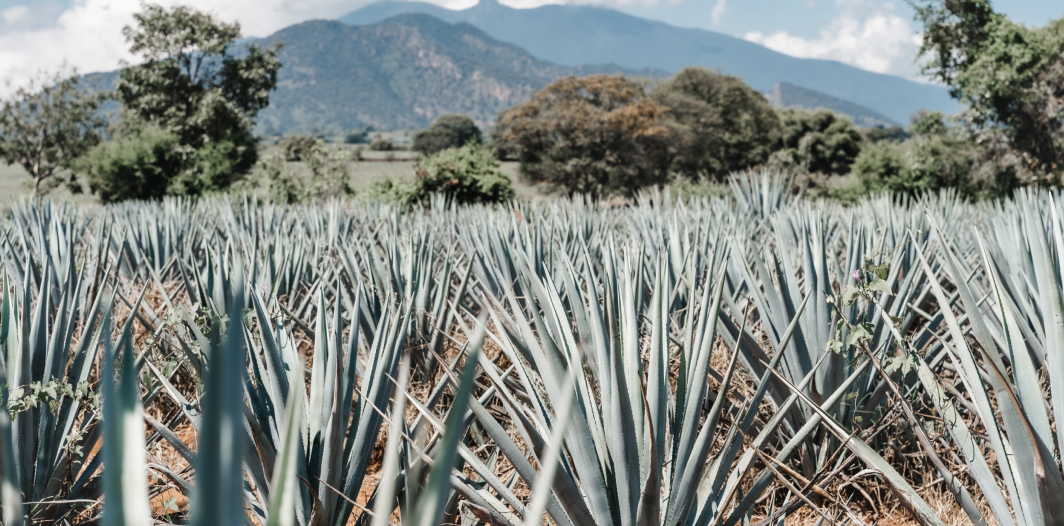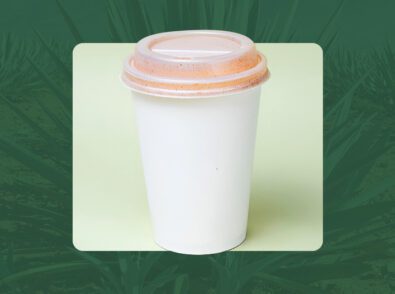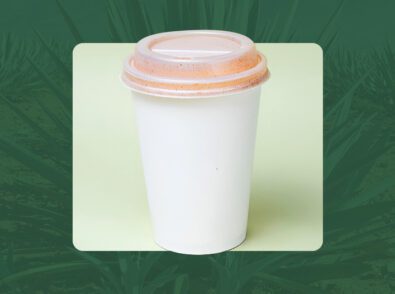Are Agave Straws Gluten Free?

With gluten allergies, sensitivities, and celiac disease on the rise, many people are choosing to avoid gluten as part of a healthier lifestyle. While gluten doesn’t affect everyone, some people experience digestive issues or slower metabolism when they eat it. Removing gluten from their diet often helps them feel more energized and balanced.
During the process of eliminating gluten from their diet, many people are surprised by the amount of foods and products that contain it. We’re here to help explain agave straws and their gluten-free status.
Are Agave Straws Gluten Free?
Yes! Most agave straws are gluten-free, including Greenprints’ agave straws. The agave plant doesn’t naturally contain any gluten, as it’s unrelated to grains like wheat, barley, and rye. Because of this, agave-based products, including straws, generally don’t pose a risk for people with gluten sensitivities or celiac disease.
However, it’s always a good idea to confirm a product’s status with the manufacturer. While agave itself is naturally gluten free, cross-contamination can occur during production if the facility processes other materials that do contain gluten. Those with an allergy or sensitivity to gluten should verify the manufacturing process to ensure the product is safe.
Greenprint Gluten-Free Agave Straws
We often receive questions about whether our Greenprint agave straws contain gluten, and the answer is no! Our straws have always been gluten free. They do not contain any glutenous grains, making them a safe option for anyone with celiac disease or gluten sensitivities.
Greenprint straws are made entirely from plant fibers, primarily agave, sugarcane, and wood—all FSC-certified. Since agave is not a grain, it’s naturally free from gluten.
What Is Gluten?
Gluten is a protein commonly found in grain-based foods. Although gluten has been part of the human diet for millennia, modern changes in food processing have led to a rise in gluten intolerance, sensitivities, and autoimmune diseases such as celiac disease in the past few decades.
Today, it’s common to see “gluten-free” labels on food packaging, although some products have always been gluten free. Still, given the public confusion about gluten and what products contains it, perhaps this practice of labeling the product makes it easier for consumers to make wiser choices.
In the medical and natural health community, there are continued discussions about what gluten does to your body, but it’s not an issue for most people.
Some people might be sensitive or allergic to wheat but not other types of grain, but this does not necessarily mean they have a gluten allergy. Wheat is known to be one of the most heavily processed crops worldwide. This processing might cause adverse reactions, so selecting organic products to consume may help if they’re sensitive to wheat.
Eliminating gluten can improve digestion and overall wellness for individuals with gluten-related health issues. To limit gluten exposure, it’s helpful to understand where gluten is found, particularly in processed foods.
What Foods Contain Gluten?
Gluten can be found in various food products, such as:
- Bread
- Croutons
- Pasta and noodles
- Crackers
- Cookies, cakes, and other baked goods
- Breakfast foods, such as pancakes, French toast, and croissants
- Cereal
- Sauces, gravies, and soy sauce
- Beer
- Soups
Additionally, gluten may be present in processed snacks, certain meats, and even some vegetarian or vegan options. Always check product labels and ingredients to confirm if an item is gluten free.
What Is Agave?
Agave is a succulent plant native to the hot and arid regions of the Americas, particularly Mexico and the southwestern United States. It belongs to the Asparagaceae family, which also includes yucca and aloe.
The plant’s thick, spiny leaves store water, allowing it to thrive in dry conditions. Agave is prized for its sweet sap, which is extracted and used as a natural sweetener called agave syrup or nectar. The heart of the plant, known as the piña, is also processed to create alcoholic beverages like tequila and mezcal.
In addition to its culinary uses, agave is valued for its strong fibers, which are used to make sustainable products like ropes, textiles, and plant-based straws. Its versatility and eco-friendly nature make agave a popular choice in sustainable living. Agave is also gluten free, eliminating the risk for those with gluten intolerances.
Order your Greenprint Gluten-Free Agave Straws Today
Our agave straws are a great choice for individuals looking for a sustainable, plant-based alternative to plastic. They’re biodegradable and durable while offering a gluten-free option for those with dietary concerns. Explore our range of compostable single-use products today and make an environmentally friendly choice with no gluten worries.







